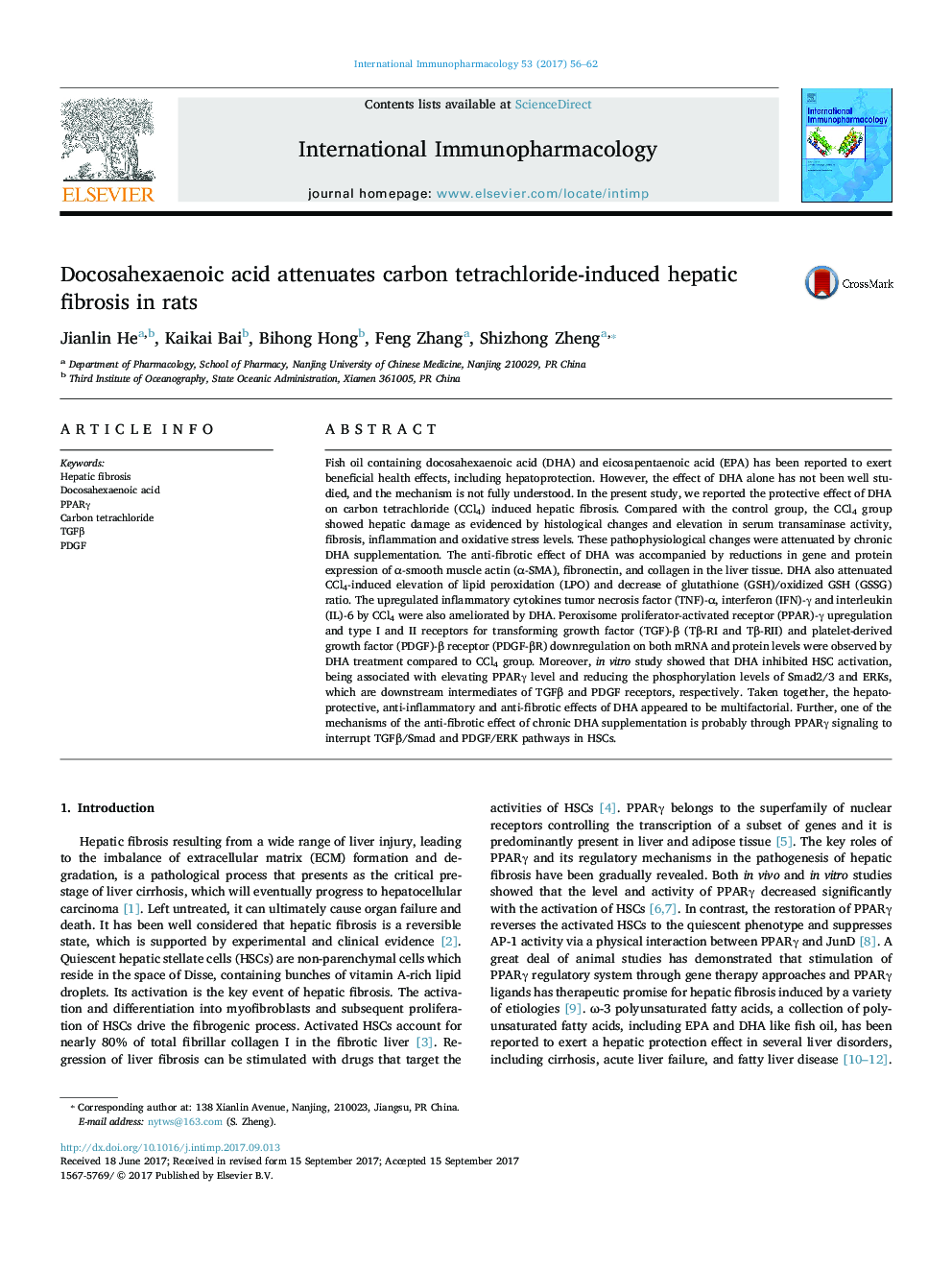| کد مقاله | کد نشریه | سال انتشار | مقاله انگلیسی | نسخه تمام متن |
|---|---|---|---|---|
| 5555199 | 1559737 | 2017 | 7 صفحه PDF | دانلود رایگان |
- The effect of DHA free acid to attenuate CCl4-induced hepatic fibrosis in a rat model was observed.
- DHA inhibited HSC activation accompanied by elevating PPARγ and interfering with the TGFβ/Smad and PDGF/ERK signaling.
- DHA might attenuate hepatic fibrosis via regulating PPARγ to interrupt TGFβ and PDGF pathways in HSCs.
Fish oil containing docosahexaenoic acid (DHA) and eicosapentaenoic acid (EPA) has been reported to exert beneficial health effects, including hepatoprotection. However, the effect of DHA alone has not been well studied, and the mechanism is not fully understood. In the present study, we reported the protective effect of DHA on carbon tetrachloride (CCl4) induced hepatic fibrosis. Compared with the control group, the CCl4 group showed hepatic damage as evidenced by histological changes and elevation in serum transaminase activity, fibrosis, inflammation and oxidative stress levels. These pathophysiological changes were attenuated by chronic DHA supplementation. The anti-fibrotic effect of DHA was accompanied by reductions in gene and protein expression of α-smooth muscle actin (α-SMA), fibronectin, and collagen in the liver tissue. DHA also attenuated CCl4-induced elevation of lipid peroxidation (LPO) and decrease of glutathione (GSH)/oxidized GSH (GSSG) ratio. The upregulated inflammatory cytokines tumor necrosis factor (TNF)-α, interferon (IFN)-γ and interleukin (IL)-6 by CCl4 were also ameliorated by DHA. Peroxisome proliferator-activated receptor (PPAR)-γ upregulation and type I and II receptors for transforming growth factor (TGF)-β (Tβ-RI and Tβ-RII) and platelet-derived growth factor (PDGF)-β receptor (PDGF-βR) downregulation on both mRNA and protein levels were observed by DHA treatment compared to CCl4 group. Moreover, in vitro study showed that DHA inhibited HSC activation, being associated with elevating PPARγ level and reducing the phosphorylation levels of Smad2/3 and ERKs, which are downstream intermediates of TGFβ and PDGF receptors, respectively. Taken together, the hepatoprotective, anti-inflammatory and anti-fibrotic effects of DHA appeared to be multifactorial. Further, one of the mechanisms of the anti-fibrotic effect of chronic DHA supplementation is probably through PPARγ signaling to interrupt TGFβ/Smad and PDGF/ERK pathways in HSCs.
Journal: International Immunopharmacology - Volume 53, December 2017, Pages 56-62
